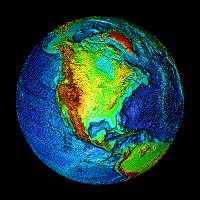Probability of a Nuclear Disaster – by Country
Posted by feww on April 18, 2011
This is an update to an earlier post published on April 8, 2011
Probability of a nuclear disaster striking near you
Places Most at Risk of Nuclear Disasters
Global
Nuclear power is harmful to the planet and all lifeforms. Any nuclear disaster striking anywhere on the planet has global implications.
Currently 32 countries operate nuclear power plants, 27 of which are building even more reactor units. Fifteen other countries that are currently without nuclear power plan to build one or more plants.
Probability of a Nuclear Disaster by Country
- Japan (880)³
- United States (865)
- Taiwan (850)
- Belgium, China, France, Finland, India, South Korea, United Kingdom, Ukraine, Russia, Slovakia, Czech Republic, Armenia, Slovenia, Croatia, Romania, Hungary, Bulgaria, Spain, Pakistan, Argentina, Brazil, Mexico, South Africa, Canada (810)
- Germany, Sweden, Netherlands (800)
- Switzerland (750)
United States
Coming soon …
Notes:
- The list represents a snapshot of events at the time of calculating the probabilities. Any forecast posted here is subject to numerous variable factors.
- Figures in the bracket represent the probability of an incident occurring out of 1,000; the forecast duration is valid for the next 50 months.
- Probability includes a significant worsening of Fukushima nuclear disaster, and future quakes forecast for Japan.
- A nuclear incident is defined as a level 5 (Accident With Wider Consequences), or worse, on the International Nuclear and Radiological Event Scale (INES). See below.
- Safety issues considered in compiling these lists include the age, number of units and capacity of nuclear reactors in each place, previous incidents, probability of damage from human-induced catastrophes such as war, as well as human-enhanced natural disasters, e.g, earthquakes, tsunamis, volcanic activity, hurricanes, tornadoes, storms, wildfires, flooding… , and other geophysical events.]
- The Blog’s knowledge concerning the extent to which those factors described in (3) might worsen during the forecast period greatly influences the forecasts.
The International Nuclear and Radiological Event Scale (INES)
The INES, a logarithmic scale, which was introduced in 1990 by the IAEA to enable prompt communication, classifies the intensity of nuclear incidents as follows:
7 – Major Accident [Chernobyl disaster, criticality accident, April 1986]
6 – Serious Accident [e.g., Kyshtym incident, Mayak, former Soviet Union, steam explosion released up to 80 tons of highly radioactive material into the atmosphere, September 1957. ]
5 – Accident With Wider Consequences [e.g., Three Mile Island accident Pen State, U.S., partial meltdown release radioactive gases into the environment, March 1979.]
4 – Accident With Local Consequences [e.g., Sellafield, UK, at least 5 incidents reported between 1955 to 1979]
3 – Serious Incident [e.g., Vandellos NPP, Spain, fire destroyed control systems; the reactor was shut down, July1989]
2 – Incident [e.g., Forsmark NPP, Sweden, a backup generator failed, July 2006]
1 – Anomaly [e.g., TNPC, France, 1,600 gallons of water containing 75 kilograms (170 lb) of uranium leaked into the environment, July 2008]
0 – Deviation (No Safety Significance) [e.g., Atucha, Argentina – Reactor shutdown caused by tritium increase in reactor encasement, December 2006.]
Last Updated: April 20, 2011 at 02:58UTC

Taiwan Nuke Plant Leaking Radioactive Water « Fire Earth said
[…] following probability figures calculated by FIRE-EARTH on April 8, 2011 still […]
feww said
Protests against India nuclear plant turn violent
http://www.reuters.com/article/2011/04/19/us-india-nuclear-protest-idUSTRE73I21Q20110419